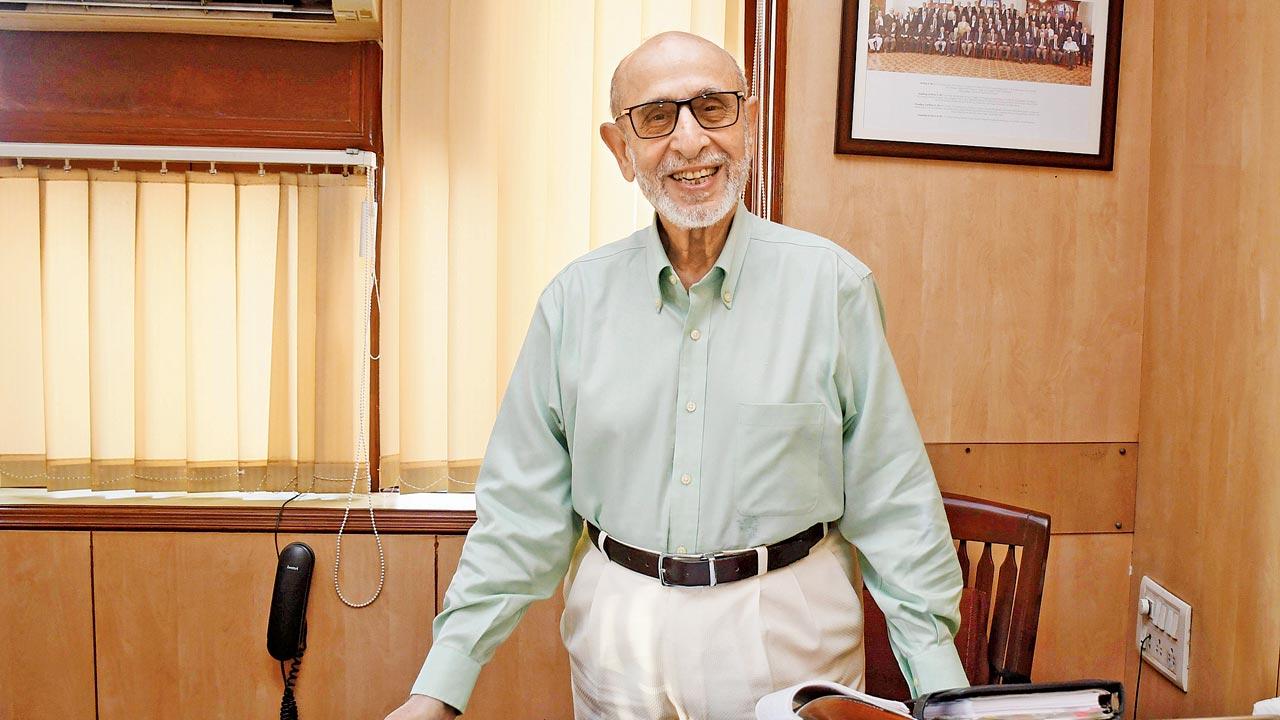Mumbai – The Bombay High Court has sought comprehensive responses from the Maharashtra government, Mumbai Police, and Maharashtra Pollution Control Board (MPCB) regarding a contentious petition filed by five mosques. The legal challenge centers on the controversial loudspeaker removal from mosques used for Azaan (call to prayer) and the subsequent termination of their licenses, marking a significant development in the ongoing religious rights debate.
Legal Challenge Against Arbitrary Enforcement

The petition, filed by Anjuman Ittehad O Taraqqui Madinah Jama Masjid and several other mosque management organizations across Mumbai, has brought the issue of loudspeaker removal from mosques to the forefront of constitutional discourse. The petitioners, who manage various Masjids, Dargahs, and religious places throughout Mumbai, have alleged that the police action represents arbitrary enforcement and selective targeting of Muslim institutions.
Justice Ravindra V Ghuge and Justice MM Sathye presided over the case, issuing notices to the State, police, and other relevant authorities. The bench has directed all respondents to file their replies by July 9, indicating the court’s serious consideration of the allegations surrounding loudspeaker removal from mosques.
Allegations of Discriminatory Targeting
The petitioners have raised serious concerns about the manner in which the loudspeaker removal from mosques has been conducted. According to their submissions, the arbitrary and unconstitutional police actions commenced in April, with notices citing violations being issued to various Muslim places of worship without providing specific details of the alleged violations under the Noise Pollution Rules (NPR) 2000.
Also Read: Congress MLA Anirudh Singh Rana Booked For Assault on NHAI Officer In Shimla
The mosque representatives argue that these notices failed to mention crucial details such as the date and time of alleged violations and the actual decibel measurements recorded during the supposed infractions. This lack of specificity has become a central argument in challenging the loudspeaker removal from mosques initiative.
RTI Revelations Expose Enforcement Gaps
Perhaps most damaging to the authorities’ position are the revelations obtained through Right to Information (RTI) queries. The petitioners cited RTI responses that disclosed the police “have no such data available” regarding noise-measuring instruments or training schemes. This revelation suggests that the loudspeaker removal from mosques was not based on scientific data or proper enforcement protocols but rather on arbitrary discretion.
The absence of proper noise-measuring equipment and trained personnel raises serious questions about the legitimacy of the enforcement actions that led to the loudspeaker removal from mosques across Mumbai.
Constitutional Rights Under Scrutiny


The legal challenge goes beyond the immediate issue of loudspeaker removal from mosques, encompassing broader constitutional principles. The petitioners have argued that the state’s enforcement actions, including imposing arbitrary fines, terminating existing licenses, refusing license renewals, and forcefully seizing loudspeakers, violate fundamental rights guaranteed under Articles 14, 15, 21, 25, and 26 of the Constitution.
The mosque representatives contend that every person has the fundamental right to practice their religious beliefs within the parameters of sound decibel limits established under NPR 2000. This argument positions the loudspeaker removal from mosques as not merely an administrative action but as a potential violation of constitutional guarantees.
Questionable Administrative Requirements
The petitioners have also challenged a circular dated April 11 issued by the State, which demanded ownership documents and land titles for religious premises as a precondition for loudspeaker licensing. They describe these requirements as “fishing inquiries not related to the germane issue of preventing noise pollution,” suggesting that the loudspeaker removal from mosques may be part of a broader agenda.
This administrative burden has been characterized as unnecessarily onerous and potentially discriminatory, given its application specifically in the context of the loudspeaker removal from mosques initiative.
Religious Significance of Azaan Amplification
Central to the legal argument is the spiritual necessity of loudspeakers for the Islamic call to prayer. The petitioners have submitted that Azaan “is positioned among the mandatory practices of Islamic ritual” and that “this vital spiritual purpose cannot be served without the means of an amplifier/loudspeaker.”
They emphasize that the Azaan is conducted between 6:00 AM to 10:00 PM, with each call lasting merely 2 to 3 minutes. The brief duration of these calls, they argue, cannot remotely produce noise amounting to pollution or actionable nuisance, making the loudspeaker removal from mosques an excessive response.
Background of Enforcement Directive
The current legal proceedings occur against the backdrop of a Bombay High Court order from January 2025, which had directed police to act against all religious structures violating noise pollution norms. This earlier directive appears to have set the stage for the subsequent loudspeaker removal from mosques, though the petitioners argue that the implementation has been discriminatory.
Legal Representation and Proceedings


Senior Advocate Yusuf Moochala and advocate Mubin Solkar have appeared for the petitioners, bringing considerable legal expertise to challenge the loudspeaker removal from mosques. Their representation suggests the seriousness with which the Muslim community views this issue and their commitment to seeking judicial redress.
Implications for Religious Freedom
The case surrounding loudspeaker removal from mosques has broader implications for religious freedom and the balance between noise pollution control and constitutional rights. The outcome of this legal challenge may establish important precedents for how authorities can regulate religious practices while respecting fundamental rights.
The petitioners’ assertion that “the whole movement is targeting Muslim community and is the instance of hostile discrimination” reflects the community’s perception that the loudspeaker removal from mosques represents more than administrative enforcement—it symbolizes a challenge to their religious identity and constitutional protections.
As the court awaits responses from the Maharashtra government, Mumbai Police, and MPCB, the case continues to highlight the complex intersection of religious rights, environmental regulations, and administrative discretion in contemporary India.

